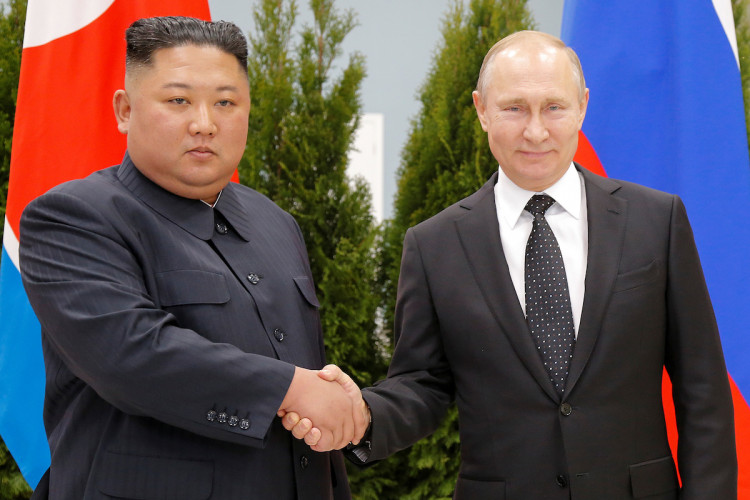Recent intelligence and satellite imagery analysis have indicated a notable cessation in the flow of artillery shells from North Korea to Russia, a move that has raised eyebrows among international observers and potentially alters the dynamics of the ongoing conflict in Ukraine.
This development comes amid reports that four Russian vessels, identified as the Lady R, the Angara, the Maia-1, and the Maria, have ceased their regular voyages between Rajin port in North Korea and Russia's far eastern ports of Dunay and Vostochny, disrupting a pattern of at least 32 documented trips that facilitated the transfer of military supplies.
The halt in shipments has led to speculation regarding the underlying reasons, with possibilities ranging from production challenges within North Korea's armaments factories to logistical complications in the transportation of the munitions.
The implications of this disruption are significant, as Russia's military efforts in Ukraine have been bolstered by the steady supply of artillery shells from Pyongyang. The cessation of these shipments could exacerbate Russia's reported ammunition shortage, further straining its military operations in the contested regions of eastern and southern Ukraine.
The relationship between North Korea and Russia has been characterized by a mutual exchange of military hardware for technological support, particularly in the realm of satellite technology. This partnership has implications beyond the immediate context of the Ukrainian conflict, potentially aiding North Korea in advancing its nuclear weapons program and satellite capabilities. The cessation of maritime shipments raises questions about the continuity of this exchange and the future of the North Korea-Russia alliance.
The strategic significance of the halted shipments is underscored by the reliance of both North Korea and Russia on each other for military and economic support, especially as international sanctions and geopolitical pressures limit their access to global markets. The collaboration between the two nations has been a critical factor in sustaining Russia's military endeavors in Ukraine, with North Korea emerging as a key supplier of arms to the Kremlin.
As the situation unfolds, the international community remains vigilant, monitoring the developments for any signs of resumed activity or alternative methods of arms transfer between North Korea and Russia. The temporary pause in artillery shipments introduces a new layer of complexity to the conflict in Ukraine, highlighting the intricate web of international relations and military logistics that underpin contemporary geopolitical conflicts.






